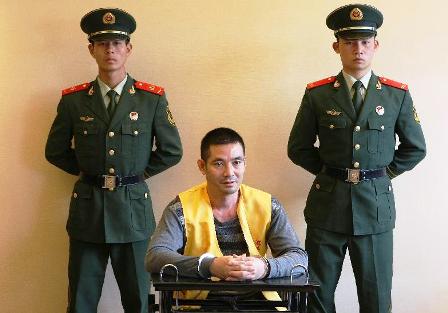
BY WILLA FREJ:
Last month, security officials in Laos arrested Mr. Naw Kham, a notorious drug lord who had been evading an international manhunt that lasted six months. Although his capture took place 100 miles downstream from the Chinese border, along the Mekong River, it was orchestrated in Beijing by top Chinese government officials intent on making him suffer for the killing of 13 Chinese seamen on this same river. A victory for drug enforcement everywhere, this event also highlights some of the trends regarding borders and regional dominance that China has recently become comfortable with.
In October of 2011, the mutilated bodies of these 13 Chinese men were found on the Thai side of the Mekong River. Naw Kham, an elusive citizen of Myanmar at the heart of the region’s dynamic drug business, was deemed responsible for this attack. Once captured, the drug lord was tried in a provincial court and executed in a highly publicized television broadcast. The killings he was responsible for represented the worst slaughter of Chinese citizens abroad in recent memory.
And yet what is the significance of the term “abroad” in this context? China’s ability to methodically execute an international search via its Ministry of Public Security hints at its rather alarming political and economic clout across Laos, Myanmar and Thailand. These three Southeast Asian countries represent the “Golden Triangle” and are interconnected in many ways. Moreover, when investment and trade are brought into the mix, borders and law enforcement seem to become increasingly porous.

An envoy from the Chinese Ministry of Public Security worked with local Laotian officials, making use of a legacy of having trained over 1,500 police officers in Southeast Asia in the last decade. This team also benefited from Chinese enclaves scattered across Golden Triangle territory, including a Chinese-owned casino in Northern Laos, complete with Chinese street signs, currency, and security forces.
In the aftermath of the execution of Naw Kham, the Chinese government invited senior officials from the Golden Triangle countries to Beijing in order to make its intentions clear – it envisions stricter river patrols orchestrated by China. According to Paul Chambers, director of research at the Institute of South East Asian Affairs at Chiang Mai University in Thailand, “no group or state is going to be allowed to mess around with China on the Mekong River.”
Given the United States’ pivot towards Asia, China’s self-perceived victory of absolute authority in the Golden Triangle may be a reaction to the recent bellicose rhetoric that has flown back and forth between Washington and Beijing. While this incident is not a notable break from the norm, some may view it as a subtle reminder to the United States that a confluence of factors – economics, culture, history, geography – will act as enablers in China’s efforts to assert itself regionally and internationally. On the flipside, this may simply be a positive demonstration of renewed Chinese willingness to combat cross-border crime.
In any event, China is exercising growing clout over its neighbors to the South, and the countries of the Golden Triangle do not seem to mind. Chinese strength is latent yet omnipresent; the question remains whether more hard power will be necessary in order to establish unquestionable predominance, first in the region and then perhaps elsewhere.
Willa Frej ’13 is in Pierson College. She writes about China’s foreign policy as she works on her senior essay discussing the topic. Contact her at willa.frej@yale.edu.